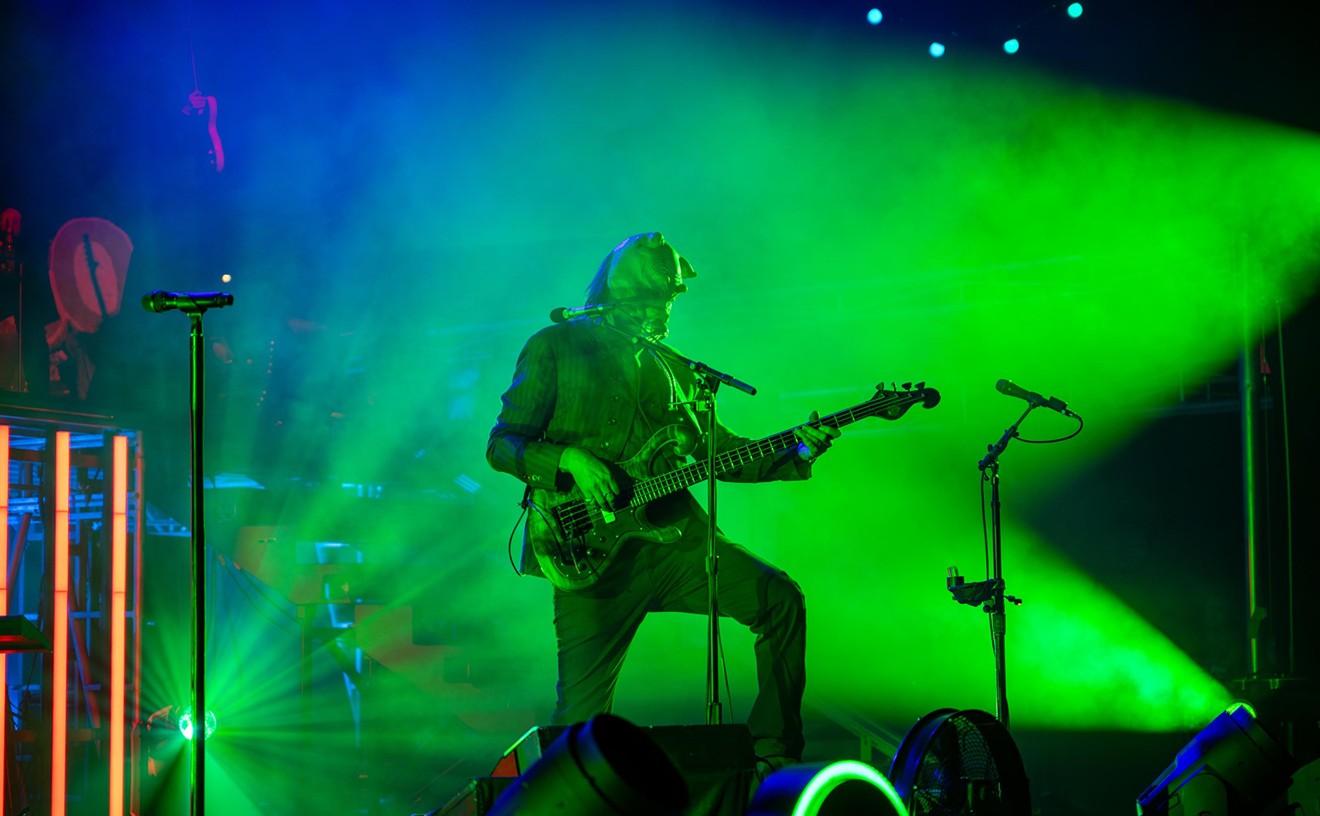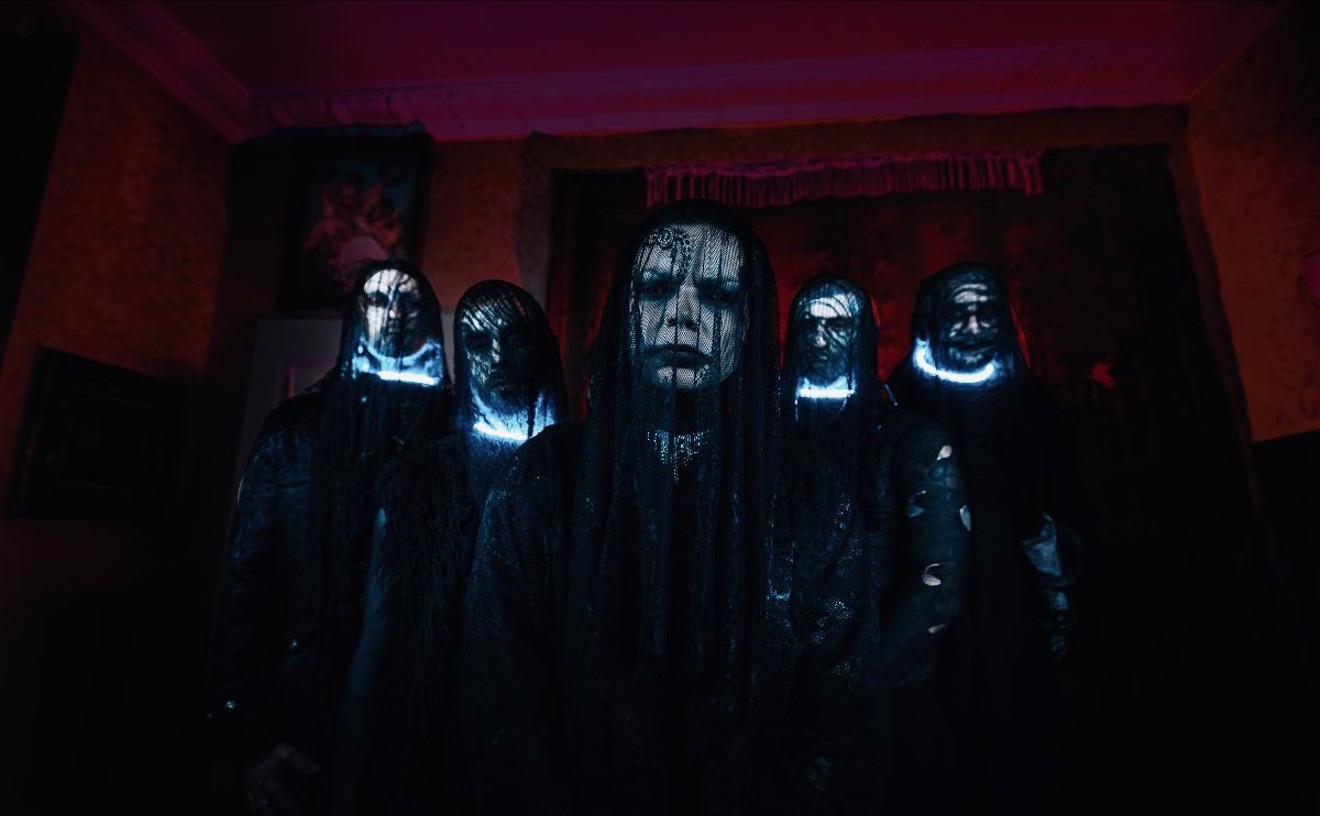"Alvino had brought this folder, and Régine was looking through it. All of a sudden, she came across this picture of him hanging out with Louis Armstrong," remembers Butler, leader of indie-rock sensation the Arcade Fire, his voice still full of shock and pride. "He was never a bragging-about-the-old-times kind of person. He never talked about stuff like that unless you really picked his brain about it. I was lucky that he lived so long, and that he was so on the ball in his older age. I didn't get that opportunity with my grandmother, who was a really interesting lady. She passed away when I was seventeen, so I never really got that close to her. But I feel really lucky that, as an adult, I got to know Alvino."
Butler wound up doing more than just getting acquainted with his grandfather; he's following in the patriarch's footsteps. Alvino was born Alvin McBurney in 1911, but he became revered around the world as Alvino Rey -- bandleader and father of the pedal-steel guitar. His life reads like a Hollywood musical: At nineteen, he began supporting his family during the Depression by playing banjo, which eventually led to his pioneering role in the development and popularization of both the pedal-steel and the electric guitar. His style encompassed jazz, Latin, Hawaiian, pop and what has since been dubbed exotica, the space-age-lounge sound of the 1950s. (Alvino would even record with exotica's undisputed master, the legendary Esquivel.) Then, while racking up hits with his orchestra, Alvino worked with chart-climbing vocal act the King Sisters; he soon married Louise King -- Butler's grandmother. The couple recorded and toured together in various configurations for years, and Alvino continued to do live appearances up through the '90s.
They say that you absorb your social paradigms, your patterns for living, from your forebears. The Arcade Fire proves it. Butler and Chassagne were married soon after that eye-opening visit from Alvino, and the two have since kicked their band into high gear, starting with the 2003 unleashing of The Arcade Fire EP. But the family ties are tighter than just the parallels between Butler, his wife and his grandparents. The singer/guitarist's little brother, Will, also plays in the Arcade Fire, on guitar and keyboard, and when the outfit was ready to put out a single on noted independent label Merge, the decision was made to split the record with another group -- Alvino's.
"It wasn't some conceptual idea; it was more a personal thing," Butler says of the Arcade Fire/Alvino Rey Orchestra split single. Featuring a tune called "My Buddy" that the Orchestra recorded as World War II burned across Europe, the disc is a tribute to Alvino, who passed away three months before it came out last June. The effect of his death on Butler was devastating.
"Alvino was important to me," says Butler. "He was important to Régine and Will. I think anyone who met him really thought he was an awesome, awesome guy. He taught me that playing music with your wife and actually making a living doing it isn't a weird thing, but a totally normal, wonderful thing. That was just kind of the way he lived. Even though I didn't really appreciate what he did until much later, it ended up having a huge effect."
But Alvino's passing wasn't the only somber influence on the Arcade Fire's debut full-length, Funeral. In the months before the disc was recorded, Chassagne's grandmother also died, followed soon by an aunt of Richard Parry, the band's other guitarist/keyboardist. (The group is rounded out by violinist Sarah Neufeld, bassist Tim Kingsbury and drummer Jeremy Gara.) The aftermath of loss and grief reverberates across Funeral. Not that it's all doom and gloom: The disc runs through every imaginable mood and texture, from tender and intricate to brash and joyous. In fact, a phone call to the outfit's tour van reveals not a mournful bunch of sad sacks, but a pack of screaming kids in a heated match of Laser Tag. Likewise, its live shows have become infamous for off-the-cuff instrument-juggling and free-form derangement.
"It's kind of a pain in the ass," Butler admits. "But for better or worse, that's how we write songs, playing all kinds of different instruments. We're not really going for duplicating the record when we play every night. We try to keep ourselves guessing. We like to just go off. I would say it's more punk rock -- in the Clash sense, not the Blink-182 sense."
The punkest song on Funeral is easily its most contagious. "Neighborhood #3 (Power Out)" chimes and clangs like a siren, a jangled gnarl of guitars and glockenspiel with a muscular bass line that flips the tone of the song abruptly back and forth from ebullient to menacing. "Wake Up" is heavier, thick with distorted chords and a syrupy choir that comes across like a cooked-down congregation of Broken Social Scene and the Polyphonic Spree. The inspirations for "Crown of Love" are paradoxically more upbeat and more depressing; although the track starts as a piano-plunked dirge lifted straight from David Bowie's "Rock 'n' Roll Suicide," it explodes into a forlorn prog-pop-disco coda that resembles Jonathan Richman jamming with ELO.
Despite all its theatricality and goofy abandon, there's no way to avoid getting drenched by the torrents of melancholy and mortality that flow over Funeral. The gravity of the bandmembers' recent losses is inescapable in lines like "Time keeps creepin' through the neighborhood/Killing old folks, wakin' up babies just like we knew it would" and "I can see where I am goin' to be/When the reaper he reaches and touches my hand."
As vulnerable and compelling as Butler's vocals are, though, it's Chassagne's jazzy hybrid of English and Haitian French -- a vestige of her parents' homeland -- that best carries the vibrant sadness of the Arcade Fire. On the aptly named "Haiti," her voice shimmers as the accompaniment rings with a Caribbean vibe that pipes in the otherworldliness of Alvino's own exotica. But the album's closer, "In the Backseat," is Chassagne's most shining moment; in it, she sounds like Bjrk fronting a codeine-choked Xiu Xiu as she coos the somber observation "My family tree is losing its leaves."
As usual with the Arcade Fire, everything cycles back to family. For instance, go to the band's website and click on "Bio." Where the average group would have a long-winded, self-congratulatory account of its genesis, Butler and kin have posted just a single picture: a faded photograph of the members of an Asian household dressed in their Sunday best that looks like it was snapped during the Eisenhower era. Above it is the simple caption "Our Story." The image is telling. As you stare at the faces, immobile in the harsh light of the flash, you can feel the aura of love, security and pride that emanates from them. It's the same as the assured and tightly knit synergy that suffuses the music of the Arcade Fire.
"I'm not trying to do some budget Psychology 101, but your family ends up pretty obviously impacting you as a person, the way you treat your lover or the world or the dude at KFC, or whatever," Butler explains. "It even affects how you relate to people when you're at war. I just think it ends up having much broader consequences. It's impossible to avoid. Even when people are like, 'I hate my fucking parents, and I never want to talk to them again,' that's still having an impact. You're born into these relationships, and they totally end up shaping your personality and the way you see the world.
"Alvino was my mother's father," he stresses, as if that says it all. "He taught me that music is integral to life. We're still kind of forming what we really are with this band, but we always want to experiment with our sound and try different stuff. We always want to be open to change."
Alvino surely couldn't have agreed more.










